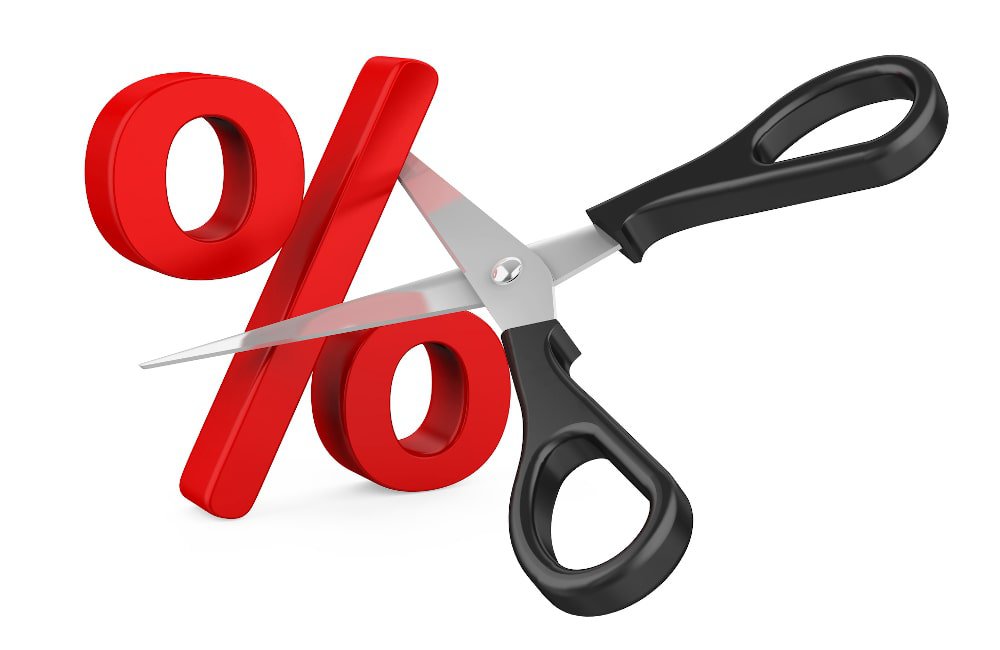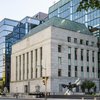Why Does the Bank of Canada Cut Interest Rates?

When the Canadian economy starts to lose momentum — whether due to economic uncertainty, declining consumer spending, or a global pandemic — the Bank of Canada (BoC) will often intervene through an interest rate cut.
Each year, the BoC holds eight meetings at which they decide the new target overnight rate. This rate is the one at which the big Canadian banks will lend money to one another for a brief period of time, ultimately stimulating a change in the interest rate .
Rate cuts are intended to increase the amount of money flowing back into the economy, lower the cost of borrowing, and reduce the appeal of saving. Lower borrowing costs encourage businesses to invest more and consumers to spend more, which ultimately boosts the economy's supply of capital.
What Led to the Most Recent Rate Cuts?
The BoC has already lowered interest rates twice this year: once on January 29th and again on March 12th. These cuts were anticipated due to economic uncertainty following the U.S. imposed tariffs on Canadian exports and the threat of additional ones.
Depending on how many new tariffs are implemented and how long they remain active, they can severely impact Canada’s economy and job market. Although the BoC has made these proactive cuts, the rate is expected to drop further by the end of the year.
Central banks will typically cut interest rates for one of five main reasons:
- Stimulates Economic Growth - Encourages consumer spending and business investment
- Counteracts Economic Slowdowns - Combats the effects of a recession (e.g. COVID-19)
- Reduces Unemployment - Makes it easier for businesses to hire new employees
- Addresses Deflation - Drives demand for goods and pushes prices up
- Boosts Exports - Makes the currency less valuable, increasing the amount of exports
As a consumer, it is essential to keep an eye on interest rates as they affect your ability to borrow money (e.g. loans, mortgages, credit cards) and can impact the returns you see on your personal investments (e.g. savings, bonds, GICs). By staying informed, you can mitigate the impact of these changes on your financials and even take advantage of changing economic conditions.
Why Has the BoC Cut Rates Before?
Looking back at rate cuts and increases over the past few years, we can see that the BoC’s decisions are always based on the current economic landscape. Historic trends can offer valuable insights into the key factors that shape Canada’s monetary policy and what we can expect from future rate changes. Below is a table highlighting some of the most significant rate adjustments in the past few years and the rationale behind each of them:
| Date | Change | New Rate | Rationale |
|---|---|---|---|
| Mar 2020 | -0.50% | 0.75% | Needed to support the economy following COVID-19 pandemic response and shutdowns |
| Mar 2020 | -0.50% | 0.25% | Emergency cut as economy and markets worsened |
| Mar 2022 | +0.25% | 0.50% | In response to rising inflation following the pandemic |
| Jul 2022 | +1.00% | 2.50% | Highest increase in decades following soaring inflation |
| Jan 2023 | +0.25% | 4.50% | Continued response to inflationary pressure |
| Jun 2023 | +0.25% | 4.75% | Persistent inflation required another hike |
| Jun 2024 | -0.25 | 4.75 | Rate cuts begin as inflation and economic growth slow |
| Dec 2024 | -0.50% | 3.25% | Sharp rise in unemployment prompts sizable rate cut |
We can see that rate changes are always made in response to significant economic events. Key indicators/metrics such as inflation, unemployment, and economic growth are essential in making these decisions. During the COVID-19 pandemic, we saw interest rates fall near all-time lows to support the economy through the difficult period. Soon after, rates began to increase in response to post-pandemic inflation.
What Happens to Mortgages After a Rate Cut?
The mortgage interest rates in Canada are closely tied to the Bank's policy rate. After a BoC rate cut, homeowners may see an immediate impact on their mortgage payment for the following month, depending on whether they have a fixed or variable rate.
Fixed Rate Mortgage
Regardless of interest rate reductions by the Bank of Canada, if you have a fixed rate mortgage, your interest rate will not change until it is renewed.
Variable Rate Mortgage
Your interest rate will change throughout a variable rate mortgage in response to changes made by the BoC. This means that as rate cuts are made in Canada, your mortgage provider’s prime rate will drop, lowering your mortgage payment starting the following month. The table below illustrates how your variable rate mortgage would be affected by a change in the prime rate:
(25-Year Amortization Period)
| Mortgage Amount | Lender Prime Rate | Monthly Payment |
|---|---|---|
| $500,000 | 7.20% (Jul 2023) | $3,495 |
| $500,000 | 4.95% (Mar 2025) | $2,900 |
We can see that in under two years, the Bank of Canada rate cuts have lowered variable monthly mortgage payments by over $500. This benefit raises an important question for borrowers: Is it better to choose a fixed or variable mortgage?
What Are Mortgage Agents Saying?
Mortgage agents nationwide are closely monitoring the recent interest rate cuts by the Bank of Canada and their implications for homeowners. Following the BoC's historic cuts in 2024, bringing the policy rate down to 3.25%, there has been a notable increase in homeowners considering a switch from fixed-rate to variable-rate mortgages. The BoC has since enacted a number of additional rate reductions, the most recent of which was on March 12th, when it lowered the rate for the seventh time in a row to 2.75%.
While rates are expected to continue declining throughout 2025, there is still uncertainty around the pace and degree of future cuts. Given the current mortgage dynamics, mortgage agents offer three main pieces of advice for navigating this unstable market:
- Asses Your Financial Goals: Consider your mortgage options, long-term goals, and risk tolerance.
- Stay Informed: Keep up to date on BoC announcements and broker expectations for future interest rate changes.
- Consult Professionals: Consult a mortgage broker to explore the options that best fit your individual circumstances.
“With the Bank of Canada entering a rate-cutting cycle, we’re seeing more clients question whether sticking with their fixed-rate mortgage still makes sense. Although switching to a variable rate has the potential to save money, the best option always depends on the long-term plans, risk tolerance, and financial objectives of the borrower.”
Rushi Parikh - Mortgage Agent Level 2
Conclusion
In conclusion, interest rate cuts are imposed by the Bank of Canada as a result of changing economic conditions. Mortgages may be directly impacted by rate cuts, with variable-rate mortgages benefiting the most right away. Variable-rate mortgages present a good chance to save money as interest rates continue their downward trend.
If you're unsure which option is right for you, speak with a mortgage professional. Contact our team today to get personalized advice that fits your goals!
FAQ
When is the next BoC rate cut?
The next Bank of Canada meeting/interest rate announcement is scheduled for April 16, 2025. Many experts are watching this date closely for signs of a potential Canada rate cut. The bank is also expected to publish its quarterly Monetary Policy Report, which contains its latest forecasts for the economy and inflation.
How quickly will my mortgage payment change after a rate cut?
Your monthly payment can change as soon as your lender updates their prime rate — usually within a few days of a BoC announcement. This new payment amount will then come into effect for the following month.
Is it possible to switch from a fixed to a variable rate mortgage?
You can change your variable rate to a fixed rate at any time by renegotiating with your mortgage lender. However, if you leave a mortgage contract before the end of the term, there is a penalty for doing so. Waiting until the end of your current term and renegotiating your mortgage at that time is usually the best course of action.





